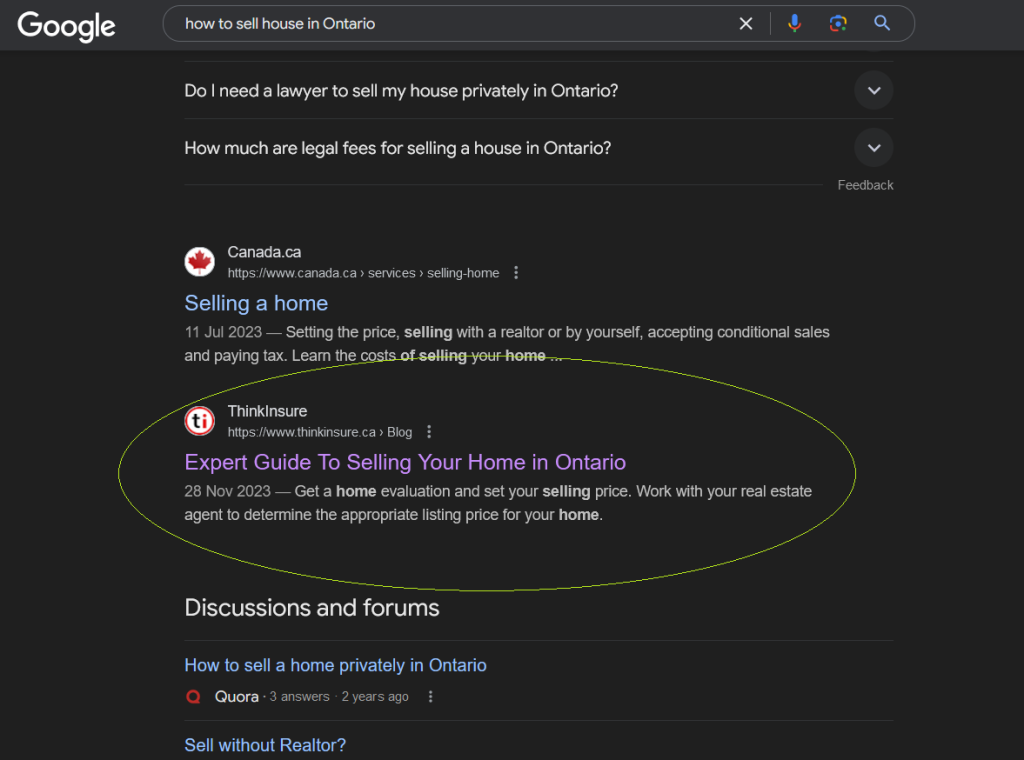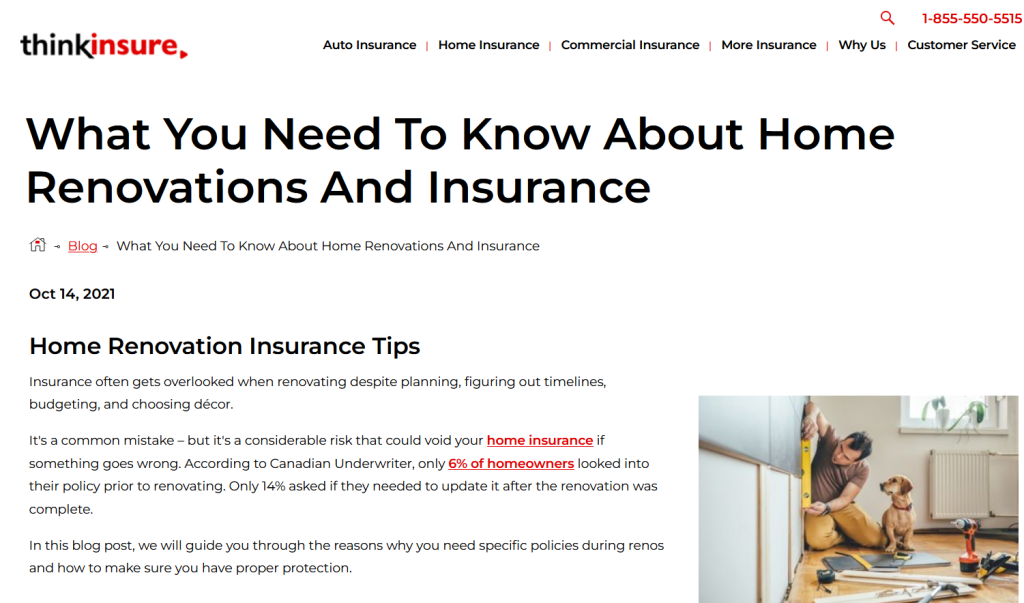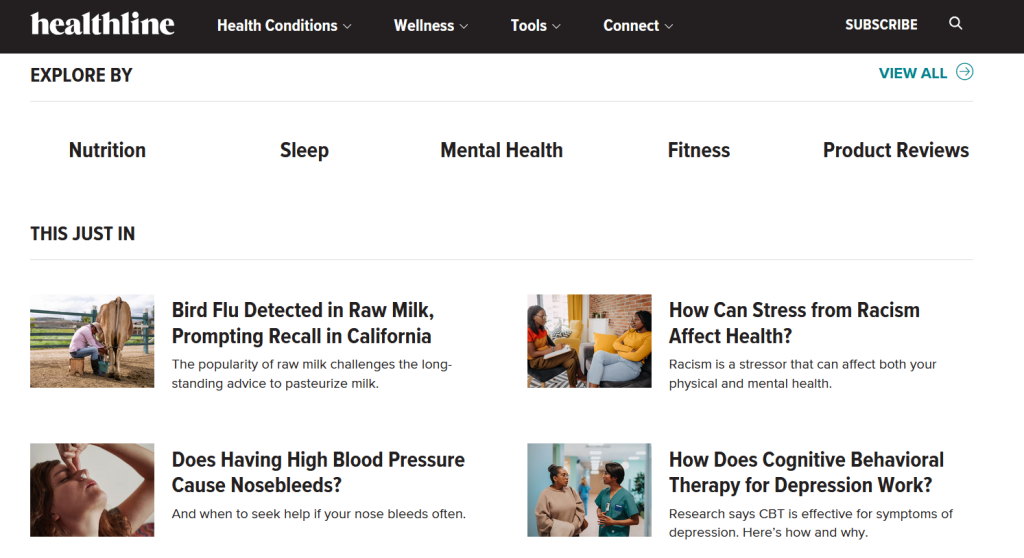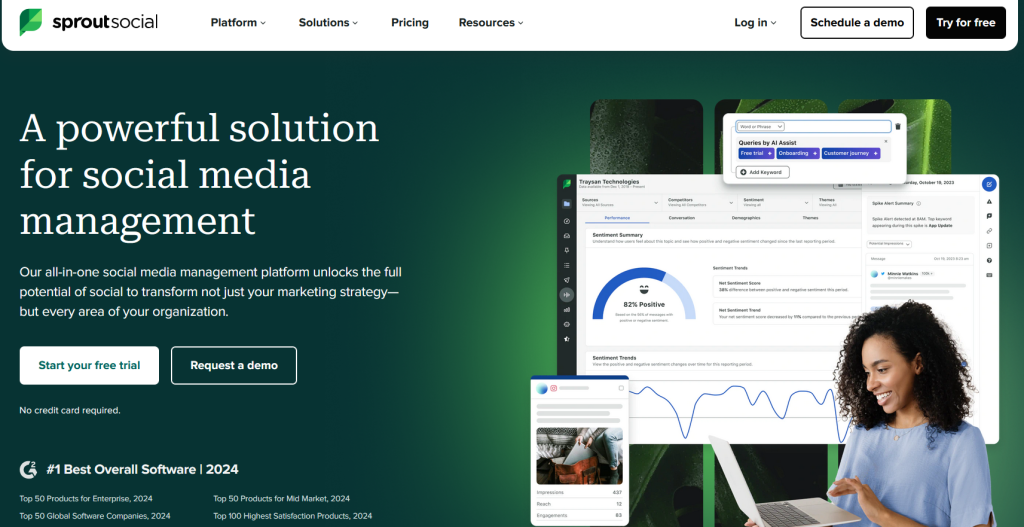Search Engine Optimization that leads to higher ranking for websites has evolved drastically in the last few years. While content is still the silver bullet to obtain desired position on the SERPs (Search Engine Results Pages), ways of utilizing it has changed. Establishing topical authority on any niche market is now a magical formula to get the desired ranking on popular search engines. Combined with other SEO and content marketing activities, Topical Authority can help your SEO endeavors immensely today.
Let’s decode this “formula”, understand its importance, and offer guidelines to build it.
Would you believe if someone told you that you can rank for multiple keywords at the same time? Well, that’s exactly what topical authority can help you achieve. However, you need to establish complete authority on the topic in hand and write as much as you can about it.
For example, if you’re writing on Generative AI and its influence on marketing, you should create an array of covering each aspect of the topic IN DETAIL and LINK them.

The web of articles you manage to create will give a complete idea to the users, who want to know everything on the topic. And that’s how you’ll achieve Topical Authority.
It does seem quite simple theoretically, but there are many more factors to consider. By understanding the concept top-to-toe, you can take your content marketing strategy a notch up.
What is Topical Authority in SEO?
In the simplest terms, topical authority can be defined as your website’s state of reliability and expertise on a particular subject. Search engines rely more on websites that manage to establish topical authority on a niche market, thus becoming the go-to source of information for the users.
Today’s SEO revolves around the audience, i.e., the searchers. Targeting only a few keywords in an article on a definite topic is no longer enough to rank it. Building topical authority should be your priority for the subject you’re writing about. Again, a single article, or information resource won’t be enough to cover everything related to that topic.
In a survey by Surfer SEO, more than 88% of search engine experts believe that Topical Authority is an important consideration for SEO. 98% of the respondents also believe that keyword clustering is an essential content marketing strategy to achieve organic gains.
Let’s say your website is about gym equipment. You’re writing on “strength training”, a high-competition topic related to the fitness industry. You cannot risk leaving out anything, because your competitors have already established trust and credibility in the area. The only way to stand out is to cover every possible aspect of the subject in your content.
There are tons of information you can give to the user, like:
- What is strength training
- What is functional strength training
- What muscle to train when you train for finger strength
- Strength training for runners
- Strength training for beginners
- What supplements you can use while working out
- Benefits of protein powder
And many more.

Source : SEMrush
Obviously, giving out all these information in a single piece of content will make it somewhat cluttered. If you want to build topical authority on the subject, you need to create a content cluster (an interlinked web of articles/blogs) using the targeted keywords. Each piece of content in the cluster will highlight a group of related queries(keywords) that the users type into the search tabs.
By interlinking the articles, the content cluster will then become the go-to information resource on the topic – strength training. By providing authentic workout videos, images of proper form and structure, data set, infographics, and etc., in each article, you’ll eventually achieve topical authority on the subject.
The Role of Topical Authority in SEO
Topical Authority determines the trustworthiness and credibility of your website in its niche market. About 97% of pages on Google doesn’t receive ANY traffic. Of course, you’ll want your website to be in the remaining 3%. When you become an expert in your niche, the search engines will rank your website higher. Topical authority in SEO is this measure of reliability that decides your website’s fortune and its ranking on the SERPs.
Developing quality content is the only way to achieve topical authority on a subject, as discussed earlier. Content helps increase the E-E-E-T (Experience Expertise, Authoritativeness and Trustworthiness) score of any website. Search engines, like Google, depend on this score (among other ranking factors) to understand if any website is worth the users’ time and energy.
Authoritative content that perfectly fulfills the user intent is something that search engines love. When users want to know about a certain topic, they will scour the internet for information. What if they get all relevant, authentic information at a single source? The search engines will invariably rank that particular information resource at the top. Topical authority, thus, is also a measure of relevance, authenticity and reliability of the information that you’re providing in your content.
Topical authority in SEO is no new concept. Over the years, Google algorithmic updates have pointed to content-based authority on a website’s niche topic:
- 2013 – The Hummingbird Update first prioritized user intent by reducing the importance of keyword-matched relevance in ranking
- 2023 – The Helpful Content update embraced content based on first-hand experience over low-quality, generic content
- 2024 – The Helpful Content ranking factor further stressed on the website’s usability in fulfilling searcher’s intent
The primary aim of any content creator is to establish long-term visibility in the search landscape. By building topical authority in your website’s niche market, you can achieve that easily. As a useful information resource, a website with topical authority also helps drive more traffic and lead to more conversions. Generic content that don’t cover topic beyond the surface is no longer considered useful by searchers. As a result, search engines reject such content created only for the sake of keyword-oriented marketing.
To build topical authority, you need to give ample time for research, outlining, delineation, creation, and clustering before publishing any content. Once you establish your position as an expert in your niche, there will be no looking back.
Building Topical Authority or Backlinks – Which is More Beneficial in SEO
While link building is still a necessary ranking factor, building topical authority in your niche may help you rank without too many quality backlinks. It’s not an easy job to get useful backlinks from authorized websites. Many a time, your collaboration request may be denied, or come with specific instructions that may reduce the chances of promotion.
On the other hand, developing topical authority by generating a cluster of high-quality search engine optimized content helps you compete with enterprise-level companies for higher ranks. Take the following example.
Keyword – “How to sell house in Ontario”
When you type this query in the search box, you’ll see the following blog among the top results:

When you go to the page and inspect the content further, you’ll notice that:
- It doesn’t have too many inbound links,
- Is not a well-established real estate website,
but has immense topical authority because of the way the content has been created.



Source : ThinkInsure (Canada)
Every content in the cluster (attached by internal links) covers different aspects of the main topic, giving detailed information and guidelines on the same. It fulfills the user intent to such a degree that it automatically ranks high on the SERPs along with other top-tier websites.
That’s the power of topical authority!
But there’s no reason to think that link building is an outdated activity or isn’t preferred by search engines any more. Generating at least two backlinks from websites with high DA (Domain Authority), will boost your marketing endeavors, if you’ve already achieved topical authority.
Note: A trusted page with topical authority will generate relevant backlinks organically, as well as more social media shares. It’ll gain the position of trust among users, and thus the search engines.
Building Topical Authority in 6 Easy Steps
Becoming an expert on a topic through content is easy, if you are aware of the basics of SEO, like internal linking, page structure, keyword research, etc. In 6 easy steps, you can become a topical expert in your website’s niche market. Here’s how:
Step 1: Choose a topic relevant to your business and target audience
You should select only from topics that are relevant to the industry you serve. For example, if you’re a furniture dealer, you shouldn’t write about landscape design, or it won’t give your website the desired position in the SERPs. Choose a topic that is closely relevant to your business, the target audience, and the industry. Also, the topic should be a broad one, so that you can create multiple articles to form a content cluster.
Consider the following examples:
- For a furniture dealer, “types of furniture for your office” can be a good, broad one. You can create several topics from it.
- For gardening services, “summer trees” can be a broad topic to build authority.
- For an online fashion store, “styling trends to look out for this winter” is one amazing topic to establish topical authority.
Note: Don’t forget to check what your rivals are writing on before you start creating the cluster.
Step 2: Conduct a thorough keyword research to create a list of relevant user queries
Use effective keyword tools, like Google Keyword Planner, SEMrush, or others, to determine the right set of keywords for your topic cluster. The key rule of thumb is to create a list of user queries from the tools and analyze each on Google to understand its potential. Don’t forget to check the “People also ask” section for more relevant user queries. And yes, don’t focus only on high-volume keywords. The low-volume ones can make it easier and faster for your content to rank at the top.
There are two main types of keywords that you should focus on:
- Informational keywords – These mainly target users at the top of the sales funnel, when they are mainly looking for answers to their queries and have not decided to buy anything yet. For example – What type of office chairs prevent backaches?
- Mid-funnel keywords – These can influence buying decisions at the middle of the sales funnel. For example – Best Ergonomic office chairs for long hours.
Step 3: Create a web of subtopics related to the main topic
Come up with an array of subtopics around the main topic with relevant but not redundant information. You can either conduct a competitor analysis, or use AI tools, e.g. ChatGPT, for the same. With a minimum of 10 topics and a maximum of 30 subtopics, you can achieve topical authority in your niche market.
Step 4: Ensure content depth in each subtopic
“Thin content” or content that add no value to the user is disregarded by search engines and cannot help you build topical authority. You should cover each subtopic in depth with relevant and authentic information that people seek. A few ways to ensure content depth are:
- Conduct competitor research – See what other high-ranking websites in your industry are doing. Check the content format, structure, observe the types of headlines they use, visual elements, etc. Don’t forget to check what they have missed out in their content – information gaps that you can utilize.
- Create briefs and outlines for each subtopic – It will help give a definite structure to your content, besides making it easier for you to develop. You can create certain elements in advance, like primary and secondary keywords, title tag and description, URL, buyer persona (target audience), headings and subheadings, CTA (Call-to-Action), visual elements, link-able words and phrases, etc.
- Use examples and visual elements wherever seems necessary – Chunks of texts can be boring. Include engaging visuals, like images, infographics, and even videos in each subtopic to make it worth the read. Using examples will help the users understand the context better.
- Information gain should be a priority – The users MUST get some value from your content. If it’s information that they seek, you shouldn’t disappoint. Focus on adding fresh insights, case studies (if available), real-time data, and something exclusive that your competitors may have missed out.
Step 5: Develop content that satisfies user intent
For each subtopic, meet user intent by providing in-depth, authentic information. Your article should:
- Cover everything that the user is looking for
- Share experiences, opinions and references
- Be factual with real-time data for increased authenticity
- Be engaging with short sentences, bullets, and visual elements
- Be properly structured and formatted for enhanced readability
- Link to other relevant information resources
Step 6: Create the cluster by interlinking each subtopic and the primary topic
Now that the main topic and the subtopics are ready, make sure you link them with each other to complete the topic cluster, which will resemble a spider web. Besides providing the users with in-depth information on the topic, the content cluster will also make it easier for search engines to crawl your website.
The three main aspects of a topic cluster are:
- The pillar page – It’s the primary topic that resembles a hub of a wheel
- Cluster pages – These are the subtopics that resemble spokes of the wheel (or hub)
- Internal linking – Links that connect the cluster pages to the pillar page and to each other
Step 7: Regular updating of the entire cluster
Information keeps on changing in the digital landscape. With every new information in the industry, update the pillar page and the cluster pages to keep them fresh and authentic always.
You should also update content based on its performance in the search engine results. For that, you need to track and measure the performance of your content cluster regularly. The following pointers can help measure topical authority manually:
- Analyze keyword performance and rankings on SERPs
- Check content readability and comprehensiveness
- Look out for outdated information via thorough content audits
- Analyze topic share on the web using certain tools
- Assess your backlink profile from time to time
- Track your content’s position in the SERPs using tracking tools
- Utilize tools, like Google Analytics, to assess user behavior, bounce rates, engagement rates, and other performance metrics
- Conduct thorough competitor analysis for keyword overlap, social shares, backlink profile, etc.
3 Real-Life Examples of Topical Authority
Learning with examples is always a great thing, right? Now that you’re aware of the basics of building topical authority, let’s give you a few examples of websites with high TA (topical authority). Scroll on!


Source : The Spruce
When you explore the US-based home blog, you’ll see that they cover a wide range of topics related to home essentials, including interiors, gardening, landscape, holiday decor, and so on. The blog has established topical authority in its niche market, I.e., home. Whenever the users search for any information related to “home”, the search engines will direct them to this site, as it’s reliable, credible and authentic.


Source : Healthline
The NYC-based health and wellness blog has high topical authority in this niche. No wonder search queries related to health, medicines, and regular wellness is directed to this site. It also has established topical authority over related topics, like superfoods, diet, dietary supplements, etc.


Source : Sprout Social
A social media marketing blog with high topical authority in its niche. You can refer to the site for anything related to social media marketing, as they have both the expertise and trustworthiness of their audience. Even the search engine giants prefer this site for any query related to social media marketing strategies, news, software products, and regular updates.
To develop topical authority in a niche market, you need to align your brand identity with your content strategy and follow the steps mentioned above. It takes some time, of course, but once you are on the radar of your target audience, the search engine giants will recognize the same with higher ranking and visibility.
Is Topical Authority and Brand Authority the same?
There’s often some confusion between certain terms, like topical authority, brand authority and domain authority. However, each concept is different from the other, like chalk from cheese.
Topical Authority Vs Brand Authority
Both are somewhat related, which is the reason for confusion. But the concepts are not the same. While topical authority is concerned with topical expertise or trustworthiness on specific subjects, brand authority is a brand’s overall trustworthiness and reputation in the market.
You can improve brand authority of your website by building topical authority on a set of subjects in your niche market. But only that won’t help. You need to create a level of trust among your consumers and enhance your overall position in the market.
Topical Authority Vs Domain Authority
Domain authority is a numerical score that indicates the chances of a website ranking high on search engine results. This score is determined by several factors, like the age of the domain, quality of backlinks, overall site performance, speed, mobile-friendliness, etc.
On the other hand, topical authority is the topical expertise, credibility and trustworthiness of a website on a specific set of topics that align with its product/services.
Key Takeaways
- Topical authority is a measure of your expertise and credibility in certain topics that align with your business. You can achieve the same by creating an interlinked content cluster, consisting of a primary pillar page (main topic) and several related cluster pages (subtopics).
- Building topical authority is essential to acquire a good position on the SERPs. Search engines rank websites that fulfill the E-E-A-T factor and meet user intent, higher. Hence, if you have topical authority on a specific set of subjects in your niche, you’ll enjoy higher visibility and rankings on search engine results.
- Sites with high topical authority are the go-to resources for their target audience. When related search queries are typed into the search engines, the latter directs them to websites with high topical authority. If the sites also have good backlinking profiles, they are sure to top the SERPs (Search Engine Results Pages) for almost all target keywords.
- Topical authority is different from brand authority and domain authority. Brand authority requires more than topical expertise on a group of subjects. And domain authority is a numerical score that depends on factors, like domain age, backlinking, performance, mobile-friendliness, loading speed, etc.